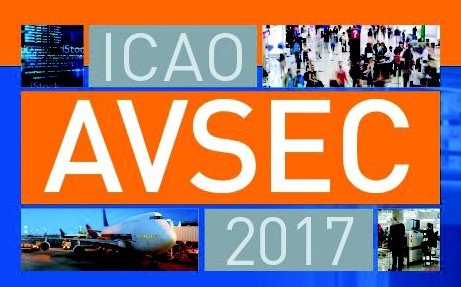Speakers, sponsors, exhibitors and attendees are firming up their plans to participate in AVSEC2017, which is being held in Montreal, Canada during the week of 11 September 2017. This important event coincides with another key aviation security initiative: final work on the Global Aviation Security Plan (GASeP). By the time everyone gathers in Montreal, States will have submitted their comments and ICAO will be hard at work making the final revisions to its content.
The alignment of these stars is fortuitous beyond the timing: the Priority Outcomes of the GASeP comprise the same focus areas as AVSEC2017. Moreover, these topics are reflected in the United Nations Security Council Resolution (UNSCR) 2309 (2016). Each of these initiatives pursues the same goal: to reduce the likelihood that an act of unlawful interference will be committed against aviation.
The five principal topics include Risk, Security Culture, Technology, Quality Control, and Capacity Building. Each is intertwined with the others, all holding equal importance in securing the aviation environment. Though each topic is represented, to varying degrees, in the Standards and Recommended Practices (SARPs) in applicable ICAO Annexes, the aviation community must develop a different approach to integrating these five aspects that goes beyond a focus in simply meeting the SARPs.
 AVSEC2017 provides a forum for identifying alternative approaches. Through table-top exercises and workshops, demonstrations, plenary sessions and activities, participants can share best practices and debate new ways to solve long-standing challenges. Including all lines of business in aviation, from regulators to airlines and airports to manufacturers, gives voice to the various perspectives in answering the challenges.
AVSEC2017 provides a forum for identifying alternative approaches. Through table-top exercises and workshops, demonstrations, plenary sessions and activities, participants can share best practices and debate new ways to solve long-standing challenges. Including all lines of business in aviation, from regulators to airlines and airports to manufacturers, gives voice to the various perspectives in answering the challenges.
The GASeP is the mechanism for capturing and subsequently implementing the results of these explorations. By conducting this event as the final edits are being made to the GASeP, its authors and editors can ensure the implementing Roadmap is both robust and realistic.
UNSCR 2309 and the GASeP are game-changing approaches to aviation security. They reveal that a secure environment requires much more than compliance with broadly worded Standards. These two documents interconnect international, State, and Industry interests and responsibilities. But neither document can bring about the envisioned change without the full-out endorsement by all Stakeholders. Bringing the GASeP to life and meeting the intentions of UNSCR 2309 require the kind of passion and innovation that will be on clear display at AVSEC2017.
About the author
 Sylvain Lefoyer became the Deputy Director of Aviation Security and Facilitation in the Air Transport Bureau at ICAO in March 2017. He leads teams responsible for developing AVSEC and Facilitation policy and SARPs, conducting audits of Member States’ aviation security activities, assisting States that are unable to address serious security deficiencies highlighted by those audits, and implementing the Traveler Identification Programme (ICAO TRIP) Strategy.
Sylvain Lefoyer became the Deputy Director of Aviation Security and Facilitation in the Air Transport Bureau at ICAO in March 2017. He leads teams responsible for developing AVSEC and Facilitation policy and SARPs, conducting audits of Member States’ aviation security activities, assisting States that are unable to address serious security deficiencies highlighted by those audits, and implementing the Traveler Identification Programme (ICAO TRIP) Strategy.
Register now for the Global Aviation Security Symposium (#AVSEC2017), held in collaboration with Airports Council International (ACI). The event will take place from 12-14 September at ICAO Headquarters in Montréal, Canada. The event is bringing together AVSEC professionals from around the globe to enhance the mind-set towards aviation security. It will also encourage international cooperation and collaboration to address the threat posed by terrorists targeting civil aviation by reinforcing, strengthening and promoting the international framework of aviation security standards.

